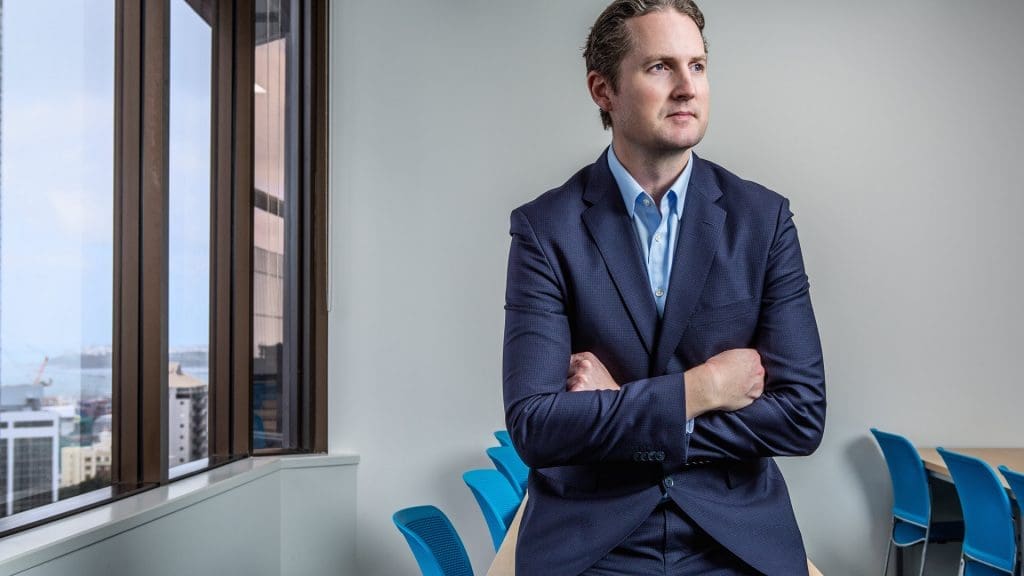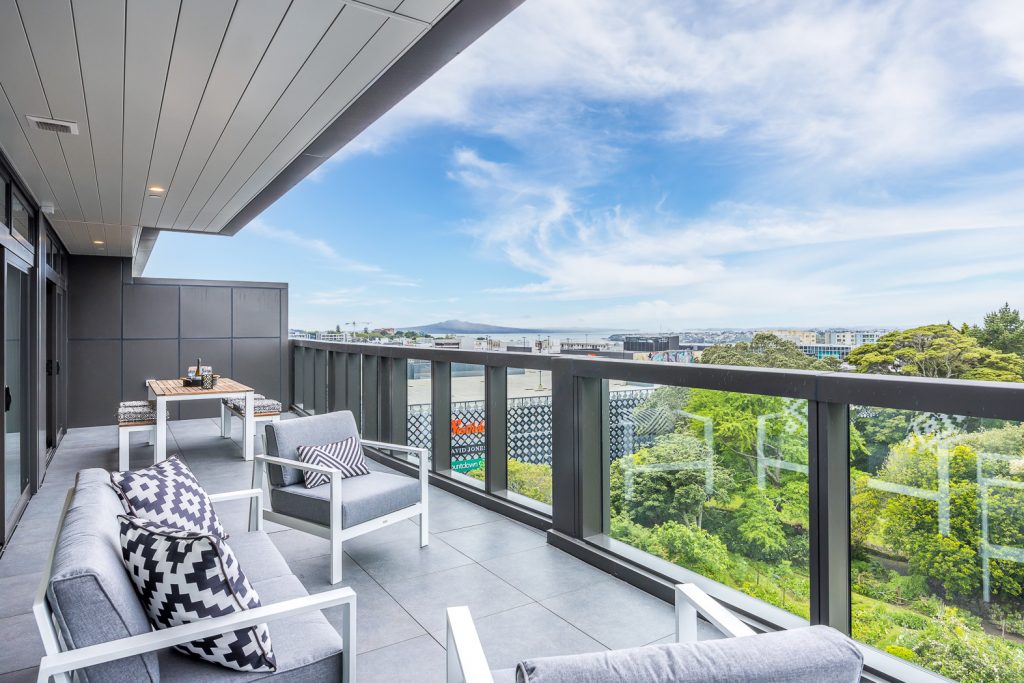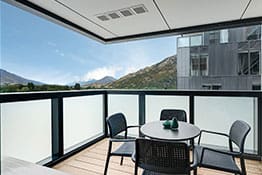Power Broker
While there is plenty of media coverage about economic headwind on the horizon, the head of CMC Markets New Zealand, Chris Smith, is optimistic about the future. And he should know, with access to over 10,000 financial products, CMC covers the gamut of the trading world. We talk to Chris about the life of an investor, from early education to diversification at retirement.
CMC Markets gives investors access to a lot of instruments. It seems to be a New Zealand thing to be obsessed with property and not be so open to other forms of investments? Is that your take on it?
I started investing in shares when I was 16, which is unusual in New Zealand. I found brokers offshore, such as in Australia, and started online buying and selling. I became very interested. But the FMA Survey last year pretty much confirmed that most New Zealanders’ main focus is property – either investment property or owning their own house.
The likes of Sharesies and Hatch and these kind of new app websites are creating a whole new group of investors, because the ‘87 crash clearly wiped out a generation of investors – in a sense they went into other asset classes as they were so damaged from that period. They weren’t investing globally in ‘87, so there wasn’t the ease of buying American shares as there is now.
For example, I only own American shares, whereas in ‘87 I would have been very New Zealand-focused. That matters because in ‘87, all the American companies and the DOW fell, but they’re all still around today. The Coca Cola’s and McDonald’s’, they would have survived, they would have recovered. Whereas in New Zealand, we had Chase Corporation and different companies. Since then, the market’s always been so small. There’s been limited opportunities and awareness of shares in New Zealand, to be honest.
We’re unique at CMC because we advertise. Brokers in New Zealand don’t really advertise, so the market share never grows, which again, doesn’t create a whole new generation of investors. If you compare us to Australia, there’s huge interest in shares and there are brokers cutting commissions, which is obviously a big hindrance to investing because the transaction costs are so high. But in Australia, it’s much more competitive, which drives the cost down. That’s where CMC is very cost focused – making sure commission rates are as low as they can be.
That has a huge impact and really starts to shape how we invest here.
As an online trading platform, CMC’s number one focus is obviously technology, but we also focus on the cost of doing business, the cost of access to the markets. We make sure we have the lowest cost for transactions. In Australia, we’re a big stock broking firm and have the lowest brokerage rates in the market over there.
Because we’re an online business, we don’t give advice, we’re not wealth managers. It’s pure self-directed traders, logging on to their mobile phone or desktop and making their own decisions. CMC has always been like that since it was founded 30 years ago.
The shadow of ‘87 has a profound impact on this. Even 20 years ago when I started buying shares, my parents were warning me on the dangers of it based on their experience of ‘87.
We can touch on the education thing, which is interesting. I wasn’t investing in ‘87, and my parents were never big investors. I was never taught, I was never encouraged. Think about this day and age: if you’re from a lower income family, no one’s telling you to focus on money or learn about investing or read books on investors.
It really has to be driven by the schools, and then the parents. I’ve got a young daughter now and I think about how I’m going to teach her over the years, because when you look at the current curriculum in schools, it’s not compulsory to include personal finance.
Around the world, most personal finance blogs will say kids aren’t taught money skills. They’re not taught the most important thing about running businesses. Language is a compulsory subject from year seven at most schools, and there are very valid reasons as to why language is taught. Up to year 10, 11, I think, personal finance is an optional subject. I know the government’s working on that with schools, which sounds good. The whole rhetoric around it sounds great.
Kids are getting into debt earlier now, they’re more exposed to advertising, Uber accounts, Spotify accounts, Netflix accounts. Everyone’s getting more and the banks are advertising to you. It would be great if there was a compulsory ‘living’ subject within curriculums, with a bit of guidance for teachers on how to teach it.
That’s kind of sad because you’d think that personal finances has as much chance, if not more of a chance, of influencing the quality of your life than many other subjects.
Yeah, I’m sure there’s a fact out there that most billionaires and millionaires are not doctors, lawyers or engineers. If you’re the top student at school, you’re more likely to become a doctor or a lawyer, you end up paying income tax your entire life, and because you’re the highest earning category, you pay the most tax. ‘Rich Dad, Poor Dad’ famously talks about that.
Society wants that; they want people paying taxes to keep the engine going. I think there’s certainly more wealth in owning a business than property, but it’s not advertised. The media is much more focused on New Zealand’s heavy property focus, but there’s actually far more money stuck in businesses in New Zealand. That just doesn’t get the coverage.
When you’re young, you’re taught that two out of three businesses fail within three years, and then taught that five out of seven might fail in five or six years. It just sounds too scary. So, you become a 9:00am to 5:00pm worker in a business.
Trading can be such a study in human psychology, does it take a certain type of person?
Every financial advisor would sit their client down, and ask ‘Where are you on the risk framework? Where do you see yourself?’ They should align that to what you should be in. If you’re entirely risk adverse and don’t want to lose $1, you should just be in the bank. I’ve worked with people and I know people that don’t want to lose $1. You need a very, very low risk investment to have entirely protected capital.
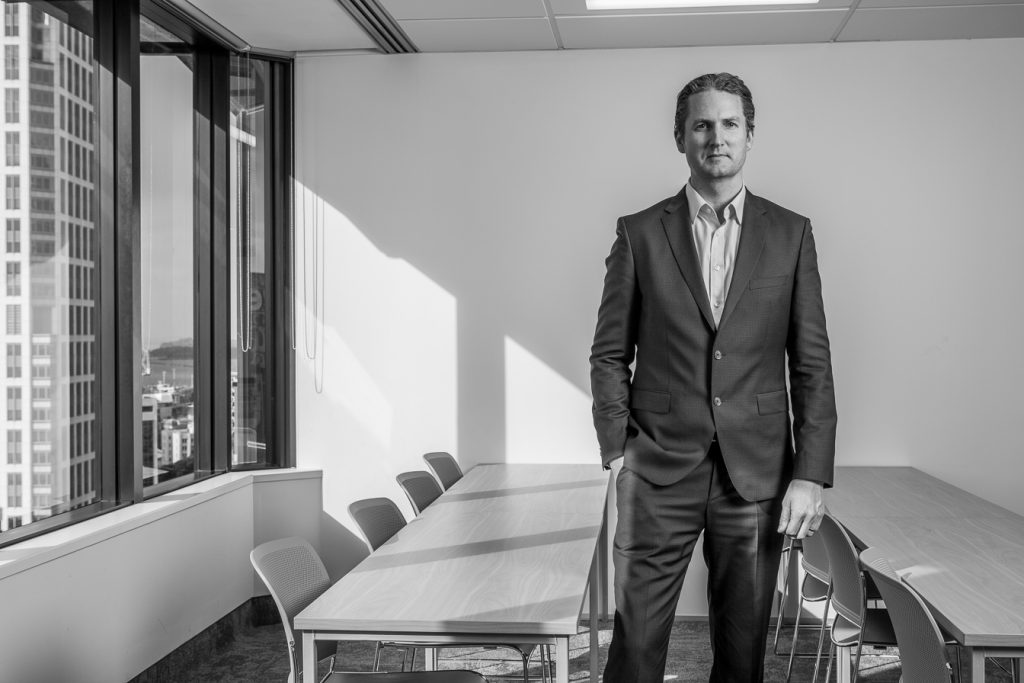
Can you shift that risk profile, with some understanding and with some experience?
With our product, our clients are very self-directed, they’re passionate about the markets. They want to do their research, they’ve got a very global view on the world. The world is so global now in terms of markets and access that they want to back their decision and take the consequences if they’re right or wrong, and obviously incorporate some risk management around that.
Diversification is the key. I’m a big one for having multiple income streams. Try and build yourself up to a point where you can have multiple income streams so that when you get into retirement, you’re not reliant on working longer and longer. That comes with property, shares, KiwiSaver, and potentially trading. You might have a business, you might do your day-to-day job. Because people don’t have multiple income streams, they continue working until retirement.
What do you think KiwiSaver has done in terms of educating people?
I’m a huge fan of KiwiSaver, I think it’s one of the best things we’ve ever done, mainly because it’s for savings. There’s a good incentive to be involved. It’s on gross income, so you don’t pay tax on your contributions. If you’re not in KiwiSaver, you’re missing out on an employer contribution. Even if you don’t invest anywhere and you literally just have the cash from KiwiSaver, you’re 100% better off than someone who’s not in KiwiSaver. Obviously you’ve sacrificed a portion of your income, but you’ve done that on tax-free money. Straightaway you’ve saved yourself 30% on tax. I haven’t come across anyone who can beat that argument.
Second of all, the company legally has to match what you are putting into your KiwiSaver. You’re not going to be offered that money as cash if you decide not to be in KiwiSaver. Then it’s almost anything above, any market return is almost a bonus.
By 2030 we’re looking at $200 billion worth of KiwiSaver money in New Zealand, what sort of impact will that have on the stock market and business growth?
It’s already proving to be an incredible weight of money in the stock market. As there are limited places for KiwiSaver funds to invest, and almost limited now just to bonds and stocks, we’re seeing the sharemarket at record highs. It would be even higher if we saw more people out of conservative funds.
We’ve seen it in Australia – plenty more companies can list on the stock market because there will be a natural buyer, natural pool of money that goes into the stock market every single week. It’s a conveyor belt of money being put to work, because they have to legally go and buy the top 10 stock or the top 20 stock.
By the time we get to a figure that big, you’d hope business investments, such as private equity, would be available.
14 years is a long tenure these days, what is it about CMC that has garnered that loyalty?
I’m a young leader, so I’m still constantly learning as a leader-to-be. I’m also very driven, very motivated. Tenure at a company like this is not so unusual in our sector, in financial markets. Certainly in the banks – traditionally, people do work at the banks for a long time. Financial markets also have quite strong loyalty, because people can have a variety of roles. I’ve had a lot of variety in different roles at CMC. I love working at CMC because of the industry and the company itself.
It’s a bit different when you’ve started the office. I started the office here in 2005, with another colleague. I have that loyalty and passion to continue growing the business. CMC is a very innovative company. It’s a very entrepreneurial-led company by the founder Peter Cruddas. There’s lots of exciting things happening all the time in the technology we offer. Because we’re at more of the leading edge of technology versus traditional brokers, that excites me more. It’s more interesting.
I think with any job, you have to have a passion for the product. I always tell my staff, “If you didn’t work at CMC, would you be watching the markets every day? Would you watch the financial markets? Would you wake up and turn on the TV or phone and check the financial markets?” If the answer’s no, you’re in the wrong industry, you’re never going to last. Same with a car salesperson, if you don’t like cars as a passion, you’re going to get bored.
What makes CMC different?
When I think about CMC, what makes us different certainly is that we have our own technology. We own our platforms; we’ve built them since 1986. We control our product, whereas many brokers might use someone else’s platform in technology. The fact we own our technology gives us a bit of an edge in the market.
Globally, we’ve been around for 30 years, and locally for 14 years. That reliability and longevity in the market creates loyal clients. There’s always other brokers trying to take your market share. Like any business, there’s always the new providers and everyone’s trying to fight for the same pool of business. We like to pride ourselves on our service, longevity of clients and our global footprint.
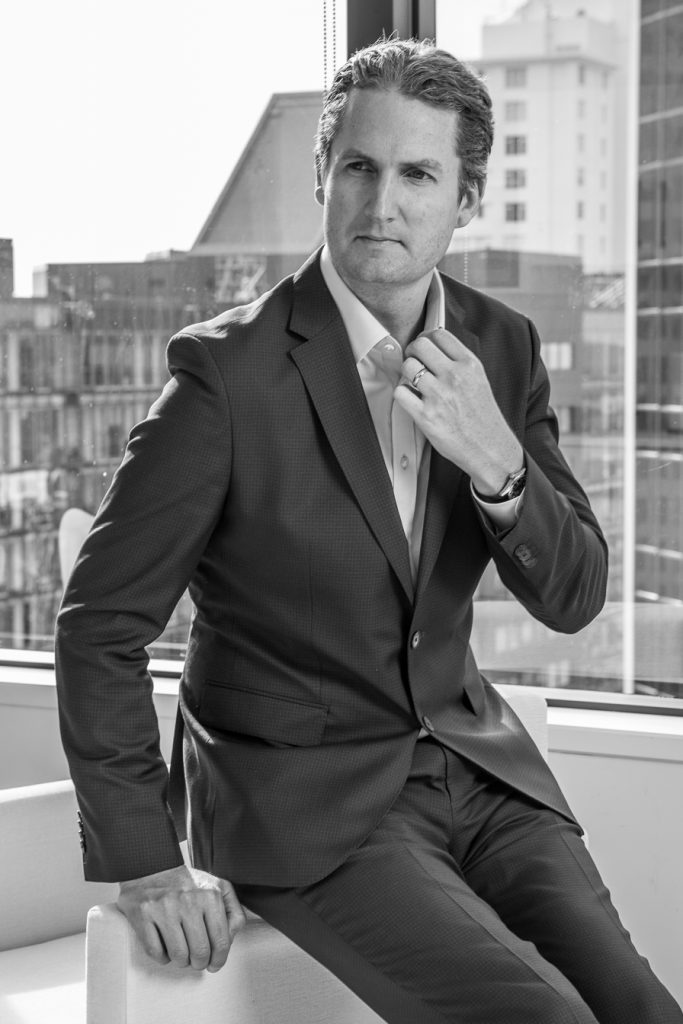
How did that opportunity to set up a NZ office come about?
We’re a British business out of London, and we already had some New Zealand clients. It was a demand-driven response. We had a big office in Australia. I used to work in the Australian office and the Australian market was going through a huge surge with the mining resource boom. There was a huge amount of interest in the financial markets, buying shares, and the resource boom added to that. All the clients joined around that time of 2002, 2003, through to 2005. As a business, we opened up offices in markets that we wanted to service. We now have 13 offices around the world.
New Zealand’s been a success story since day one – with building a very loyal client base and continuing to grow. Especially for a small population, we know that a lot of it comes down to trust, being able to come into the office and not just going online to find a broker in Singapore or Australia. Having someone to be able to come and talk to is very important.
You set up an office here and then, a few years later, come into the 2008, 2009 GFC. Was that tough?
I was doing TV interviews on ASB Business in ‘07, ‘08, ‘09 and I remember coming in on a Monday to do the interview and the market was down 1,000 points. Because I did the interviews on the Monday, on the Sunday there’d always be a crisis talk. Lehman Brothers went under on a Sunday and we had all the mergers; Merrill Lynch, buying another big brand. Monday was always the gap open in the markets.
Because the markets closed on a Saturday morning and then they reopen on a Monday, all the major events happened when the markets were closed. There was huge and unbelievable volatility. It just went on for weeks and weeks.
We survived because our clients trade the markets. Our clients actually have the ability to short the market.
There are Some big opportunities with that volatility.
There’s a huge opportunity for potentially hedging your positions with a broker or participating in a big sell off. Bank of America went from above $30 to $1. You could potentially participate in the downside, and that’s why a lot of people are attracted to our product. Right now, we see a lot of interest in clients wanting to sell or short US indices because they’re at record highs. What’s funny is things hit records all the time, but the headline grab is ‘record highs’. The market might hit 100 record highs in the year, but the natural reaction is to short it.
Personally, I’m an optimist and a momentum-type investor, I look for momentum. You could easily be drawn into the bearish camp. You could read the bearish websites, the people that predict recession. There’s an endless amount of YouTube videos with people predicting a recession and the collapse of Australia, New Zealand, and debt Armageddon in America. I’ve found it’s a lot better to be more of an optimist.
What’s your take on crypto?
Things have changed dramatically for crypto, in terms of acceptance. You are now hearing of Fidelity, one of the biggest fund managers in the world, doing custodial services for big funds that want exposure to Bitcoin. The change will happen when institutions, funds, pension funds and fund managers can actually comfortably have an exposure to crypto held in a safe custody that can’t be hacked. Whether that means it’s managed by what the New York Stock Exchange is building rather than a small website broker, such as Cryptopia or something that could be hacked.
You need to have a Goldman Sachs-backed type safe custodial, where if you’re already doing business dealings with them, it’s just a new product. Our clients are purely speculating on the price going up or down.
I’ve never touched crypto as a product myself, and until I can buy coffee with it, it’s irrelevant to me. The whole notion of hot storage, cold storage, hide it on a USB so it can’t get hacked – it all sounds to me as if it’s very focused on tax avoidance and hiding assets. You can see with Libra, the Facebook currency that they’re developing, that it’s getting a lot of attention from the central banks now. Even Donald Trump commented on it.
Blockchain’s an entirely separate conversation and that’s where it gets confusing for people. Blockchain can have incredible improvements for business.
There’s lots of exciting things happening. I’m very passionate about all different disruptive technology, AI, electric vehicles and robotics. I keep an eye on all of those exciting things to see what the next investment theme and area could be. CMC offers lots of products – 10,000 products that you can back yourself on, whether it’s cyber security or crypto that you want to invest in. It’s just trying to match products to demand.
Cannabis is obviously really hot and people are interested in “how do I get involved in this marijuana industry that’s gone crazy in America and Canada?”.
Some Canadian companies have done very well.
Yeah, Tilray and Canopy Corp had huge runs. Some of the charts look a bit similar to Bitcoin. It’s like any new industry. Everyone tries to get involved and not everyone will survive, because the cost of the product drops so dramatically as everyone is trying to generate a profit. Next year’s referendum will be interesting.
To be honest, next year is going to be interesting in terms of our economy full stop. We have the election in November and we also have the US election two weeks after. Business confidence is low, it’s always been low under Labour, historically – that’s nothing new. If you go back to the previous Labour governments, confidence readings have been low throughout the entire period. It’s also just that National has tended to be more business-friendly, so the opinion polls have always been in their favour. The lolly scramble will happen next year, so I’m not so bearish on the next few years for New Zealand, because the government has had some room to make some fiscal changes.
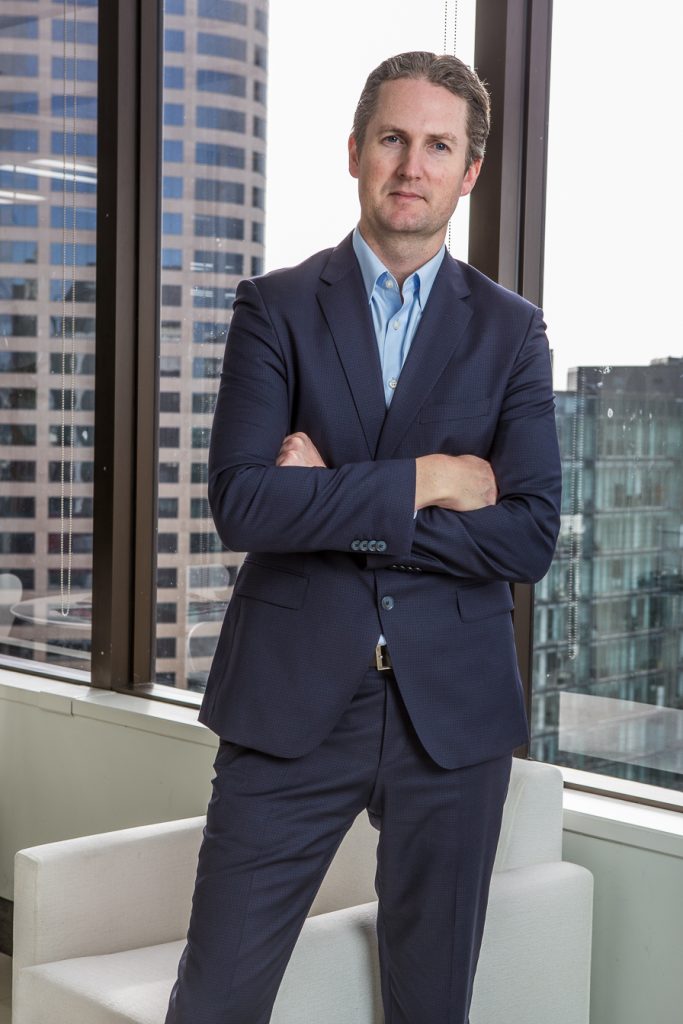
I’m glad that you’re optimistic because I probably have been listening to Ray Dalio too much. But he has been banging on about the next recession for a while now.
He can easily talk about the next recession when he’s worth $20 billion. It’s very easy to listen to these hedge fund billionaires and try and apply your situation to these because they live in such a different world of investments and risk. Stanley Druckenmiller is a famous hedge fund investor. If he comes across the wires and says, “I’m going entirely to cash”… He’s worth over $10 billion, so he can be in cash for the rest of his life. It doesn’t actually matter.
For someone who’s working, who’s on minimum wage or average wage, and they read a headline like that, it’s damaging because they’re scaring that person away from investing. They could be in their 20s and they’re trying to believe that, ‘Oh, this guy is a genius,’ which he is, but there’s no relevance to their situation.
There are so many investors who stopped investing in ‘09 and never invested again because they kept believing the market was being manipulated, stuck to a strong view and never changed that view. Now 10 years later, the market is where it is. They’re now slowly, potentially coming into the market now, or they’re staying stubborn. It is so damaging to investment returns. It’s the same with ‘87. “I’m not going back into the stock market, I lost money in the stock market in ‘87.”
Look at Mainfreight, an incredible success story. You can work your entire life, and obviously you are the most important person to invest money in, particularly in terms of your own education. Your earnings over your lifetime are certainly going to outweigh what you could make probably in investments, if you think about your salary over 30 years. But it’s what you do with your leftover disposable income for investments that the compounding returns, on something like Mainfreight, is just unbelievable.
Do you think it becomes a self-fulfilling prophecy? I think we are particularly negative in the New Zealand press.
Yeah, and the press is very property focused. If you go to the Herald or Stuff, I don’t think there’s a section on the financial markets. You can’t check what the Dow Jones did or on the S&P or the Japanese stock market. Whereas in Australia, you can. Clearly it’s not a huge driver of clicks or interest. There are plenty of business stories, but there’s not huge coverage on this topic.
We used to do business interviews on TV about the market updates and the news. All of it’s gone now. It’s all been taken over by sport. More sport news, news updates are sport-driven. You have to go and seek business news now. That just shows me that the public’s more interested in sport, which I’m sure they are, than what’s going on in the business world.
Remember there used to be AMP Business in the morning and the ASB Business? Both shows were gone years ago. Obviously, it’s expensive to run the show, but now you have to go and seek your own information on business.
Is that just a demand thing, though?
It must be a demand thing. I think when Sunday Business was taken down, they replaced it with a sports show. It’s probably being a bit unfair, because there is the odd economist and person interviewed on breakfast TV, but there’s no dedicated shows anymore. On the flip side, there’s never been more content available via podcast, on YouTube, at your fingertips. I listen to interviews every day on the way to work, on the way home, on YouTube, or via podcast.
In terms of the trading side of things, are you a more fundamental trader or a technical trader?
I’m 90% fundamentals, 10% technicals. Personally, I’m purely interested in equities. As a business, we see the majority of our clients interested in FX and index, global indices, and then the likes of commodities. I like equities because the markets close as well. It opens and closes at set times and that allows for time to spend with family and also to do other things. Whereas with your fixed market, it is open 24 hours a day. It’s a much more active product asset class to be involved with.
There could be news flow happening as we’re in an interview right now. You need strong risk management tools to make sure your risk is capped. But equities, you can go on holiday and you know the markets can be closed over certain periods as well, like over Christmas. But Donald Trump tweets any time of day these days. I think he did 3,300 tweets last year, and that’s totally changed the landscape of market moving events.
If I was talking to someone that was just a share investor who just wants to start out, I’d say, “Let’s just block out that noise. History tends to repeat. Have a strategy, contribute to it with compounding and let the market ups and downs occur.” But over time, businesses generally get more profitable and revenue grows.
If you look at something like Microsoft, it continues to grow. Businesses innovate. If you look at a Visa chat, revenue just naturally grows, so the businesses increase in value.
I’m really passionate on Chinese businesses like Alibaba and Baidu. I think Asia is 100% in the future for major growth.
The Lifestyle You’ll Love
Located in the desirable, double Grammar Zone, inner-city suburb of Parnell.
Newmarket Residences
New apartments available starting from $1,199,000 Dual keys and $1,499,000 2 bed

